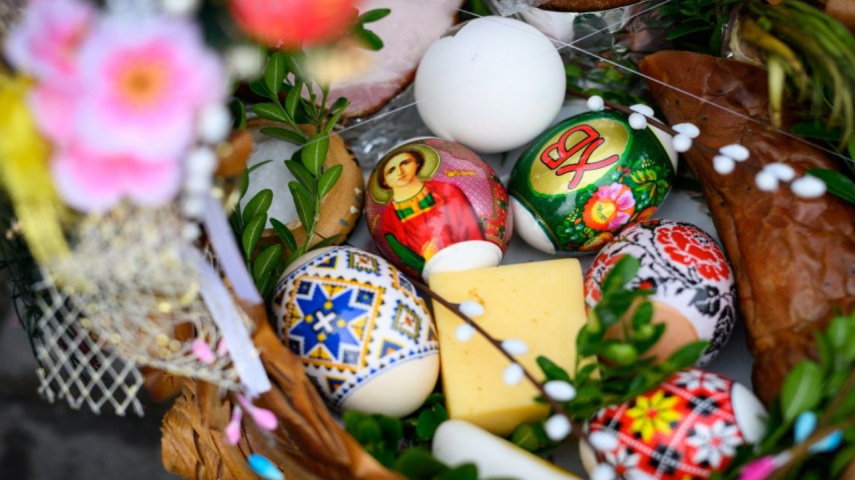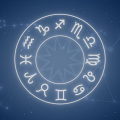Easter 2024: Date, history, significance and all we know about the festival
Easter is a Christian festival symbolizing hope, renewal, and new life, celebrating the resurrection of Jesus Christ. It is a time of feasting, prayer services, egg decorating, and traditional games.

The significant Christian festival, Easter embodies themes of hope, renewal, and new beginnings.
It serves as a beacon of hope and renewal, reminding believers of the transformative power of faith and the promise of new beginnings.
The fluidity of Easter's date, determined by astronomical and calendar considerations, adds to its mystique and underscores the cyclical nature of life and faith. This variability also highlights the festival's connection to nature and the changing seasons, further emphasizing themes of rebirth and rejuvenation.
Easter's celebration encompasses a range of religious observances, communal gatherings, and cherished traditions. From solemn prayer services to joyful feasting and the exchange of Easter eggs, each aspect of the festival contributes to its rich tapestry of meaning and expression.
Moreover, Easter serves as a spiritual culmination, bringing together believers in a shared expression of faith and solidarity. It is a time for reflection on the ultimate triumph of life over death and the enduring promise of redemption and salvation.
In essence, Easter transcends mere religious observance, resonating with individuals across cultures and beliefs as a universal symbol of hope, renewal, and the enduring power of faith.
ALSO READ: What Role Did Chance Perdomo Play In Gen V? Character Explored Amid Actor's Passing At 27
According to the New Testament of the Bible, Easter occurs three days after the crucifixion of Jesus by the Romans and concludes the "Passion of Christ," which begins with a 40-day period of fasting known as Lent and culminates in Holy Week.
Date: This year, the Christian community worldwide will celebrate Easter on Sunday, March 31.
History: The origins of Easter are rooted in the New Testament, which recounts the arrest of Jesus by Roman authorities for proclaiming himself the "Son of God." Sentenced to death by crucifixion under the Roman Emperor Pontius Pilate, Jesus' resurrection three days later marks the occasion of Easter. This day is also closely linked with the Jewish festival of Passover.
According to the New Testament, Easter is believed to have occurred on the third day following Jesus' crucifixion by the Romans at Calvary. It serves as the culmination of the religious season of Lent, a 40-day period of fasting, prayer, and penance.
Significance: Easter holds profound significance as it commemorates the return of Christ, who sacrificed himself for the sins of humanity. His resurrection symbolizes his victory over evil and death, affirming his identity as the true Son of God before ascending to heaven.
Easter marks the completion of the Passion of Christ, which begins with Lent and concludes with Holy Week. Holy Week includes significant events such as Holy Thursday (also known as Maundy Thursday), commemorating Jesus' Last Supper with his 12 Apostles, Good Friday, which observes Jesus' crucifixion, and finally, Easter Sunday, celebrating his resurrection.
ALSO READ: Beyonce's Cowboy Carter Version Vs Dolly Parton's Original Jolene: A Look At The Biggest Differences
Joyful Celebrations and Rich Traditions
Easter is a time of joyful celebration, especially after the solemn period of Lent. People indulge in various festivities, marking the occasion with vibrant traditions and activities.
One of the most beloved customs is the exchange of brightly painted chocolate-filled eggs, symbolizing new life and fertility. Children eagerly await the arrival of the Easter Bunny, who delivers chocolate eggs and sweets, adding to the excitement with Easter egg hunts and other fun activities.
The Easter Vigil, a significant religious service held on the Saturday before Easter Sunday, marks the beginning of the Easter celebration for many churches. However, there are also secular celebrations centered around the symbolism of eggs, representing birth and renewal.
While Easter holds profound religious significance for Christians, it's worth noting that many traditions have roots in pre-Christian, pagan customs. The association with fertility and rebirth, reflected in the use of eggs and the Easter Bunny, predates Christianity.
Additionally, Easter is considered a moveable feast, with its date determined by the lunar calendar. This connection to the lunar cycle is shared with other Christian celebrations such as Ash Wednesday, Maundy Thursday, and Palm Sunday.
Furthermore, Easter is closely linked with the Jewish festival of Passover, as both commemorate themes of liberation and new beginnings. This interfaith connection reflects the rich tapestry of religious traditions and beliefs intertwined throughout history.
Easter Traditions: Celebrating New Life and Fun with Eggs
The traditions and customs associated with Easter, including the use of eggs as symbols of new life and fertility, have been passed down through generations and continue to be cherished today.
Egg-related games and activities add an element of fun and excitement to Easter celebrations. Egg rolling, where decorated eggs are rolled down a hill or slope, is a popular outdoor activity enjoyed by families in many cultures. Egg tapping, where participants compete to see whose egg remains uncracked after tapping them against each other, is another entertaining Easter tradition. Additionally, the art of egg decorating allows individuals to express their creativity and add a personal touch to their Easter festivities.
ALSO READ: The Bachelor Season 28: Finalist Daisy Kent Reveals What She Will Do With Her Finale Dress
The symbolism of the Easter egg goes beyond mere decoration, as it serves as a powerful reminder of the central message of Easter – the triumph of life over death. Just as a chick emerges from its shell, breaking free into a new life, Christians believe that Jesus Christ's resurrection represents the victory of life over death and offers the promise of salvation and eternal life. The Easter lily, with its pure white petals symbolizing purity and new beginnings, further enhances this message of hope and renewal.
Ultimately, Easter is a time for reflection, gratitude, and celebration, as believers gather to commemorate the resurrection of Christ and rejoice in the promise of new life and eternal salvation. Through its rich traditions and symbols, Easter continues to inspire and uplift people of all ages and backgrounds, fostering a sense of unity and joy within communities worldwide.





 JOIN OUR WHATSAPP CHANNEL
JOIN OUR WHATSAPP CHANNEL


































































































